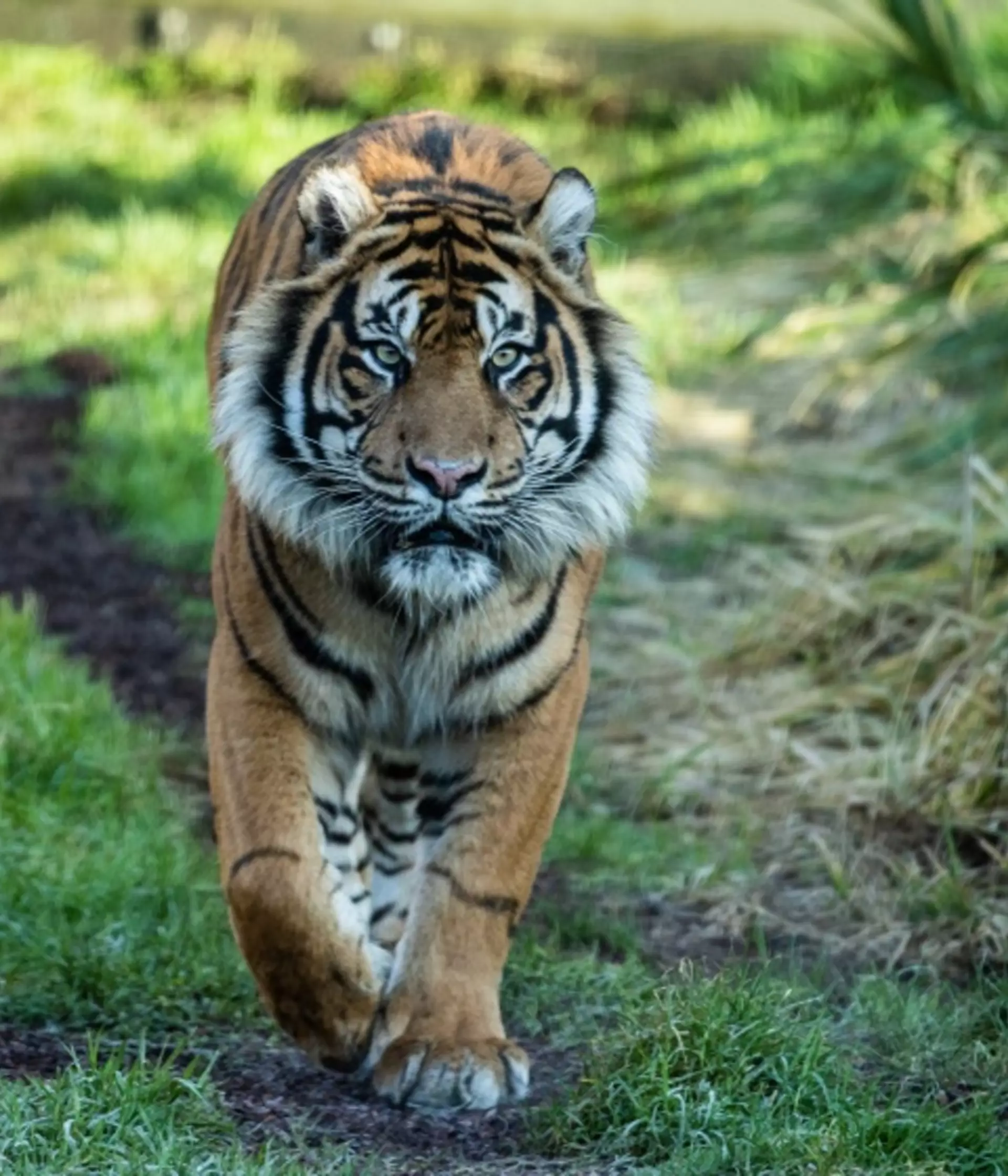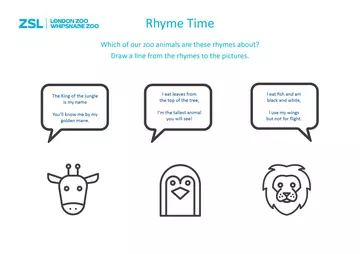
Looking for animal activities to bring your learning to life?
We’ve got a flock of educational resources to help. Grouped by Key Stage as well as being National Curriculum linked, you’re sure to find something to assist you before, during or after a visit to London Zoo – or even simply to support your learning in the classroom.
If you're a home educator, all of our 'At School' resources are perfectly designed to be used for your home learning too!
Get those brains whirring, fascination flourishing, and young conservationists exploring even more about what makes the animal kingdom so totally, utterly WILD.
Maximise the learning on your London Zoo trip with one of our teacher guides! Designed to align with topics on the National Curriculum, each guide provides recommendations on what to see, top tips for visiting those animals, and information to share with your students at each habitat.
| Endangered Animals Teacher Guide | A guide for teachers on endangered species at London Zoo, and the human-caused issues that affect these species in the wild. | DOWNLOAD |
| Rainforest Teacher Guide | A guide for teachers on rainforest animal species that can be seen at London Zoo. | Download |
| Adaptations Teacher Guide | A guide for teachers on animals that have unique adaptations at London Zoo. | Download |
| Evolution Links at London Zoo | A short guide for teachers on how to link your London Zoo trip to an evolution topic. | DOWNLOAD |
Animal Artists
Calling all mini Pablo Pig-cassos and Andy Warthogs! Grab a pencil and let’s draw some furry friends!
Rhyme Time - Local Wildlife
Match the picture of the local wildife to it's rhyme and then colour them in.
Rhyme Time - Zoo Animals
Match the picture of the zoo animal to it's rhyme and then colour them in.

Scroll down to look for your curriculum topic and find related resources for use at the zoo or at home/school.
Key stage 1 Habitats and Adaptations
| At School | School Bug Hunt | Run a bug hunt at school using this animal spotters sheet | Activity | Download |
| Design a Bug | Choose a habitat and design a bug to live there. | Worksheet | Download | |
| Habitats | Draw the animals that you might see in four different habitats. | Worksheet | Download | |
| At the Zoo | Behaviour study booklet | Use this template to carry out your very own animal behaviour study. | Activity | Download |
Identify and Classify Animals
| At School | Animal Groups | Match the animal to it's group - bird, mammal or reptile? | Worksheet | Download |
| School Bug Hunt | Run a bug hunt at school using this animal spotters sheet | Activity | Download | |
| At the Zoo | Animal Lifecycles | Explore the lifecycles of different groups of animals around London Zoo | Worksheet | Download |
Lifecycles
| At the Zoo | Animal Lifecycles | Explore the lifecycles of different groups of animals around London Zoo | Worksheet | Download |
Maths: number graphs and measurements
| At School | Zookeeper Maths | Use maths to help our zoo keepers count their animals. | Worksheet | |
| School Bug hunt | Run a bug hunt at school using this animal spotters sheet. | Activity | Download | |
| Animal Survey | Survey your family and friends and display the results. | Worksheet | Download |
Working Scientifically
| At School | School Bug Hunt | Run a bug hunt at school using this animal spotters sheet | Activity | Download |
| At The Zoo | Animal Behaviour Study Booklet | Use this template to carry out your very own animal behaviour study. | Activity | Download |
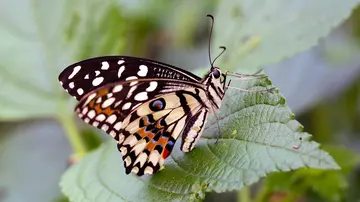
Scroll down to look for your curriculum topic and find related resources for use at the zoo or at home/school.
Key stage 2 Science
Working Scientifically: gathering, recording and presenting real world data
| At School | School Bug Hunt | Run a bug hunt at school using this animal spotters sheet | Activity | Download |
| At The Zoo | Behaviour study booklet | Use this template to carry out your very own animal behaviour study. | Activity | Download |
Endangered Species and Conservation
| At School | Angels of Wales | Discover the amazing Angel shark and explore its conservation with this interactive Ebook | Interactive Ebook | E-Book |
| Instant Wild: Exploring Endangered Species | Help ZSL’s scientists protect animals all around the world and learn about endangered species with this worksheet and our Instant Wild app | Worksheet | Download |
Habitats and Adaptations
| At School | Animal art - design an enclosure | Try your hand at designing an animal enclosure, taking into account the animals needs. | Activity | Download |
| Design a Zoo Project | Try your skills at designing your own zoo to a budget! | Activity | Download | |
| School Bug Hunt | Run a bug hunt at school using this animal spotters sheet | Activity | Download | |
| Happy Hippos | Learn all about pygmy hippos using these lesson plans. | Lesson Plans | Download | |
| At The Zoo | Behaviour study booklet | Use this template to carry out your very own animal behaviour study. | Activity | Download |
| Rainforest Survival Skills | Explore different animal adaptations around the zoo using this worksheet. | Worksheet | Download | |
| Instant Wild: Exploring Habitats, Adaptations and Food Chains | Help ZSL’s scientists protect animals all around the world with the Instant WildApp, and explore the habitats and adaptation of the animals living there. | Worksheet | Download |
Food Chains
| At School | Animal Diets | Explore the diets of different animals and investigate food chains. Make a poster with your findings! | Worksheet | Download |
| Instant Wild: Exploring Habitats, Adaptations and Food Chains | Help ZSL’s scientists protect animals all around the world with the Instant WildApp, and explore the habitats and adaptation of the animals living there. | Worksheet | Download |
Identification and Classification of Animals
| At School | Classification of Invertebrates | Explore classification and introduce your class to different invertebrate groups using these activities. A perfect introduction to the School Bug Hunt | Activity | Download |
| School Bug Hunt | Run a bug hunt at school using this animal spotters sheet | Activity | Download | |
| Instant Wild: Exploring Endangered Species | Help ZSL’s scientists protect animals all around the world and learn about endangered species with this worksheet and our Instant Wild app | Worksheet | Download | |
| Instant Wild: Exploring Habitats, Adaptations and Food Chains | Help ZSL’s scientists protect animals all around the world with the Instant Wild App, and explore the habitats and adaptation of the animals living there. | Worksheet | Download | |
| At the Zoo | Animal Lifecycles | Explore the lifecycles of different groups of animals around London Zoo | Worksheet | Download |
| Classifying Animals | Explore different animal groups around the zoo using this worksheet. | Worksheet | Download |

Maths
| At School | Feeding Time at the Zoo | Use your maths skills to work out how much food the ZSL education team need in order to feed their animals. | Worksheet | Download |
| Design a Zoo Project | Try your skills at designing your own zoo to a budget! | Activity | Download | |
| School Bug Hunt | Run a bug hunt at school using this animal spotters sheet | Activity | Download |
English
| At School | Design a Zoo Project | Try your skills at designing your own zoo to a budget! | Activity | Download |
| Happy Hippos | Learn all about pygmy hippos using these lesson plans. | Collection of Lesson Plans | Download |
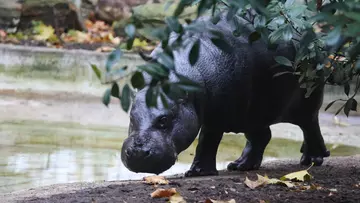
Art and Design
| At School | Design a Zoo Project | Try your skills at designing your own zoo to a budget! | Activity | Download |
| Animal art - design an enclosure | Try your hand at designing an animal enclosure, taking into account the animals needs. | Activity | Download | |
| Happy Hippos | Learn all about pygmy hippos using these lesson plans. | Collection of Lesson Plans | Download |
Scroll down to look for your curriculum topic and find related resources for use at the zoo or at home/school.
Key stage 3 science
Working Scientifically: scientific enquiry using real world data
| At School and at the Zoo | Design and run a behaviour study | Design and run an animal behaviour study using this guide. | Activity | Download |
| At School | Climate Change and Animals | Use this workbook to explore the truth about climate change and the impact it's having on species around the world. | Independent Workbook | Download |
Endangered Species and Conservation
| At School | Instant Wild: Exploring Endangered Animals and Conservation | With ZSL’s Instant Wild app you can take part in real life conservation work. Use the app alongside this worksheet to explore the treats animals are facing around the world, their IUCN status and how conservationists are helping. Consider what actions in your own life could positively impact nature, and draft a letter to your MP. | Worksheet | Download |
| Climate Change and Animals | Use this workbook to explore the truth about climate change and the impact it's having on species around the world. | Independent Workbook | Download | |
| Modern Zoo Challenge | Use this challenge to explore the topic of conservation at ZSL and it's two zoos. | Worksheet | Download | |
| At the Zoo | Save a Species Booklet | Investigate the a chosen species and put forward an argument for why it should be conserved. | Worksheet | Download |
Climate Change
| At School | Climate Change and Animals | Use this workbook to explore the truth about climate change and the impact it's having on species around the world | Independent Workbook | Download |
| Climate Change - Real Life Examples | Use this powerpoint to illustrate some of the real life effects of climate change on animals | Lesson Materials | ||
| Ecosystems and change | Explore the impacts of environmental changes on an ecosystem. | Worksheet | Download |
Ecosystems and food webs
| At School | Ecosystems and Food webs | Use this workbook to explore the interdependent nature of ecosystems. Including questions on food chains, trophic levels, pyramids of biomass and food webs, this resource covers the real life impact of change on an ecosystem, using a ZSL conservation story as a focus. | Independent Workbook | Download |
| Instant Wild: Exploring Ecosystems and Biodiversity | With ZSL’s Instant Wild app you can take part in real life conservation work. Use the app alongside this worksheet to explore ecosystems around the world. | Worksheet | Download | |
| Ecosystems and change | Explore the impacts of environmental changes on an ecosystem. | Worksheet | Download | |
| Explore the arctic ecosystem | Discover how species in the arctic interact with this worksheet, perfect for revision or lesson recap. | Worksheet | Download | |
| Tricky Trawling | Created by scientists at ZSL’s Institute of Zoology, our Tricky Trawling game explores the impacts of unsustainable fishing practices such as seabed trawling on the unique ecosystem of Greenland's deep sea floor. Use the game with these activities to explore sustainability and ecosystems. | Activities |
Sustainability
| At School | Investigating Sustainability | Explore the topic of sustainability using ZSL as a case study. | Activity | |
| Tricky Trawling | Created by scientists at ZSL’s Institute of Zoology, our Tricky Trawling game explores the impacts of unsustainable fishing practices such as seabed trawling on the unique ecosystem of Greenland's deep sea floor. Use the game with these activities to explore sustainability and ecosystems. | Activities |
Art and Design
| At the Zoo | Enclosure Design | Evaluate the pros and cons of an enclosure at London Zoo | Worksheet | Download |
Maths - ratio, proportion and rates of change
| At School | Zookeeper Maths | Discover how zookeepers use maths in their work at care for animals at London Zoo | Worksheet |

Scroll down to look for your curriculum topic and find related resources for use at the zoo or at home/school.
Sustainability
| At School | Investigating Sustainability | Explore the topic of sustainability using ZSL as a case study. | Activity |
Working Scientifically: scientific enquiry using real world data
| At School and at the Zoo | Design and run a behaviour study | Design and run an animal behaviour study using this guide. | Activity | Download |
| At School | Climate Change and Animals | Use this workbook to explore the truth about climate change and the impact it's having on species around the world. | Independent Workbook | Download |
Adaptations, Natural Selection and Evolution
| At School and at the Zoo | Design and run a behaviour study | Design and run an animal behaviour study using this guide. | Activity | Download |
Endangered Species and Conservation
| At School | Instant Wild: Exploring Endangered Animals and Conservation | With ZSL’s Instant Wild app you can take part in real life conservation work. Use the app alongside this worksheet to explore the treats animals are facing around the world, their IUCN status and how conservationists are helping. Consider what actions in your own life could positively impact nature, and draft a letter to your MP. | Worksheet | Download |
| Ethical Animal Debate Topics | Use these debate topics to explore the tricky decisions that must be made in zoos and consider things from multiple perspectives. | Activity | Download | |
| Climate Change and Animals | Use this workbook to explore the truth about climate change and the impact it's having on species around the world. | Independent Workbook | Download | |
| Modern Zoo Challenge | Use this challenge to explore the topic of conservation at ZSL and it's two zoos. | Worksheet | Download | |
| At the Zoo | Save a Species Booklet | Investigate the a chosen species and put forward an argument for why it should be conserved. | Worksheet | Download |
Ethics and Debate
| At School | Ethical Animal Debate Topics | Use these debate topics to explore the tricky decisions that must be made in zoos and consider things from multiple perspectives. | Activity | Download |
| Modern Zoo Challenge | Use this challenge to explore the topic of conservation at ZSL and it's two zoos. | Worksheet | Download |
Ecosystems and Foodwebs
| At School | Ecosystems and Foodwebs | Use this workbook to explore the interdependent nature of ecosystems. Including questions on food chains, trophic levels, pyramids of biomass and food webs, this resource covers the real life impact of change on an ecosystem, using a ZSL conservation story as a focus. | Independent Workbook | Download |
| Instant Wild: Exploring Ecosystems and Biodiversity | With ZSL’s Instant Wild app you can take part in real life conservation work. Use the app alongside this worksheet to explore ecosystems around the world. | Worksheet | Download | |
| Tricky Trawling | Created by scientists at ZSL’s Institute of Zoology, our Tricky Trawling game explores the impacts of unsustainable fishing practices such as seabed trawling on the unique ecosystem of Greenland's deep sea floor. Use the game with these activities to explore sustainability and ecosystems. | Activities |

Exploring In-Situ and Ex-Situ conservation
Critically compare the benefits and limitations of these different conservation methods
Measuring Population Size Using the Mark and Recapture Method
Use the mark-recapture method to investigate the size of a woodlouse population using this guide.
Visual and Sensory Stories
These stories can be used to help autistic and neurodivergent people feel prepared for their visit:
London Zoo's visual story London Zoo's sensory story
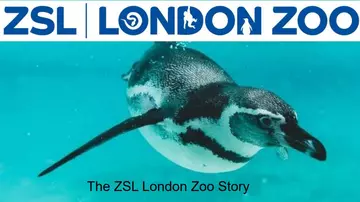
Ready to book your visit?
Educational trips to London Zoo
Everything you need to book an educational visit to London Zoo, and how to get the most from your trip.
Audiomoves at the Zoo
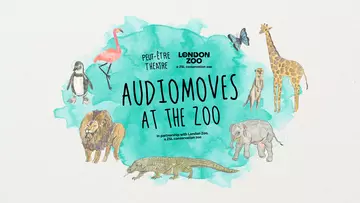
A podcast for little ones to move to, created in partnership with Peut-Être Theatre
Throughout the series you'll meet lots of animals and hear interviews between children and zookeepers as they find out all about how animals move, eat, sleep and play.
In each episode you'll learn about a different animal, from lions to meerkats to giraffes. You can listen along and waddle like a penguin, strut like a flamingo, charge like an elephant, and flutter like a butterfly.
Audiomoves at the Zoo is like a radio show for kids, with short episodes that they can follow the actions to, or simply chill out and listen along. Suitable for children aged 4+ of all abilities.
Listen via Spotify, Google, Apple or our website - wherever you get your podcasts!
Never miss an episode - subscribe now!
Audiomoves at the Zoo is funded by Arts Council England, with support from Phoenix Court, the Unicorn Theatre, The Place, Full House Theatre and Great Ormond Street Hospital.
Peut-Être Theatre is supported by Arts Council England, Backstage Trust, Garfield Weston Foundation, Foyle Foundation and Phoenix Court
